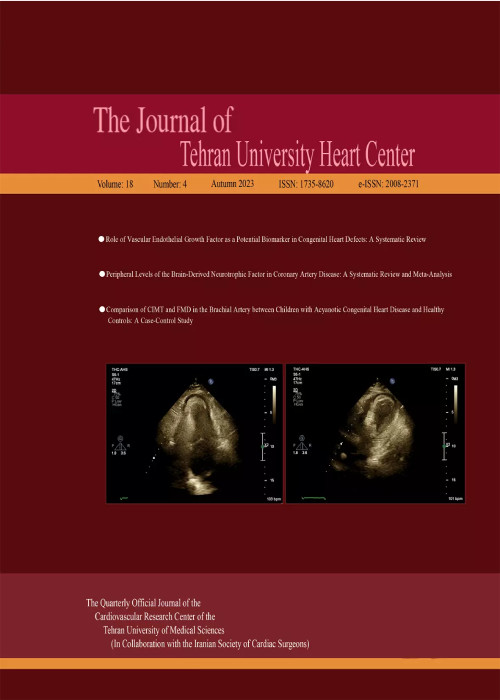Impact of Body Mass Index on In-Hospital Mortality and Morbidity after Coronary Artery Bypass Grafting Surgery
Author(s):
Abstract:
Background
Obesity is a common risk factor for morbidity and mortality after cardiac surgery. However, the relationship between obesity and postoperative risk has not been fully defined.Methods
A prospective study of 1015 consecutive patients undergoing isolated coronary artery bypass grafting (CABG) was carried out. Body mass index (BMI) was used as the measure of obesity and was categorized as normal weight (BMI=20-25) and obese (BMI>25 and<35). The preoperative, operative, and postoperative risk factors as well as the complication and in-hospital death rates were compared between the two groups.Results
Of the 1015 patients, 40% had a normal weight and 49% were obese. Compared with the normal-weight group, the obese group had a significantly higher incidence of diabetes mellitus (P=0.007) and lower arterial partial pressure of oxygen (PaO2) (P=0.03). The normal-weight patients had a higher New York Heart Association (NYHA) Functional Class (P=0.03) and were at a higher risk for emergent surgery (P=0.003) or reoperation (P=0.002). Among the postoperative complications, respiratory complications (P=0.027) were more frequent in the obese patients. The duration of mechanical ventilation (P=0.001), the incidence of arrhythmia (P=0.011), low cardiac output syndrome (P=0.001), reintubation (P=0.001), and neurological complications (P=0.003) were significantly higher in the normal-weight patients. Obesity was associated with a lower risk of reoperation for bleeding (P=0.032). There were no significant differences in infective complications, length of intensive care unit (ICU) stay, total length of stay in hospital, and operative mortality between the groups.Conclusion
In the patients undergoing isolated CABG procedures, obesity did not increase the risk of operative mortality and morbidity with the exception of respiratory complications. The normal body weight patients were at a higher risk for complications than were the obese patients. Therefore, obese patients may safely undergo CABG without previous weight reduction if due attention is paid to minimize respiratory complications.Language:
English
Published:
The Journal of Tehran University Heart Center, Volume:3 Issue: 1, Jan 2008
Page:
25
magiran.com/p571368
دانلود و مطالعه متن این مقاله با یکی از روشهای زیر امکان پذیر است:
اشتراک شخصی
با عضویت و پرداخت آنلاین حق اشتراک یکساله به مبلغ 1,390,000ريال میتوانید 70 عنوان مطلب دانلود کنید!
اشتراک سازمانی
به کتابخانه دانشگاه یا محل کار خود پیشنهاد کنید تا اشتراک سازمانی این پایگاه را برای دسترسی نامحدود همه کاربران به متن مطالب تهیه نمایند!
توجه!
- حق عضویت دریافتی صرف حمایت از نشریات عضو و نگهداری، تکمیل و توسعه مگیران میشود.
- پرداخت حق اشتراک و دانلود مقالات اجازه بازنشر آن در سایر رسانههای چاپی و دیجیتال را به کاربر نمیدهد.
In order to view content subscription is required
Personal subscription
Subscribe magiran.com for 70 € euros via PayPal and download 70 articles during a year.
Organization subscription
Please contact us to subscribe your university or library for unlimited access!


